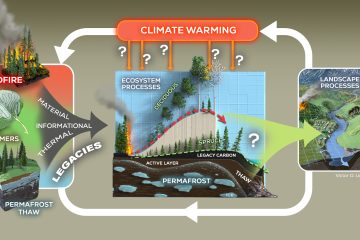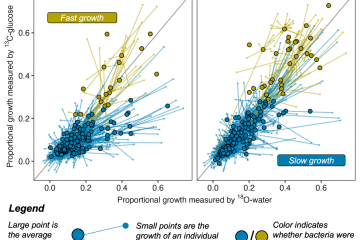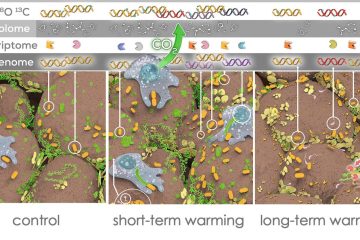Plant species mediate changes in soil microbial N in response to elevated CO2
The effect of elevated CO2 on plant-microbial interactions and nitrogen (N) cycling is critical to predicting plant growth responses to elevated CO2, because plant growth is often N-limited. We investigated whether the effects of elevated CO2 on plant-microbial N dynamics differed among six annual plant species: three European grasses that have invaded California grasslands, and one grass and two forbs native to California serpentine grassland. Elevated CO2 altered plant N pools and ‘5NH4+ uptake, but the direction and magnitude of the changes were species dependent. The introduced grasses showed increased plant N pools and ‘5NH4+ uptake, whereas the native species showed smaller increases or even decreases in plant N pools and ‘5NH4+ uptake. Under nutrient enrichment, soil microbial N and ‘5NH4+ uptake differed among soils with different plant species, but they were not affected by elevated CO2. At low nutrients, elevated CO2 altered soil microbial N and ‘5NH4+ uptake, but the direction and magnitude of the changes were species dependent. The changes in soil microbial N were positively correlated with changes in the plant N pool, suggesting that there was no trade-off in N uptake between plants and microbes. These results also suggest that plant species composition will partly determine the direction of changes in soil N cycling in response to elevated CO2.


